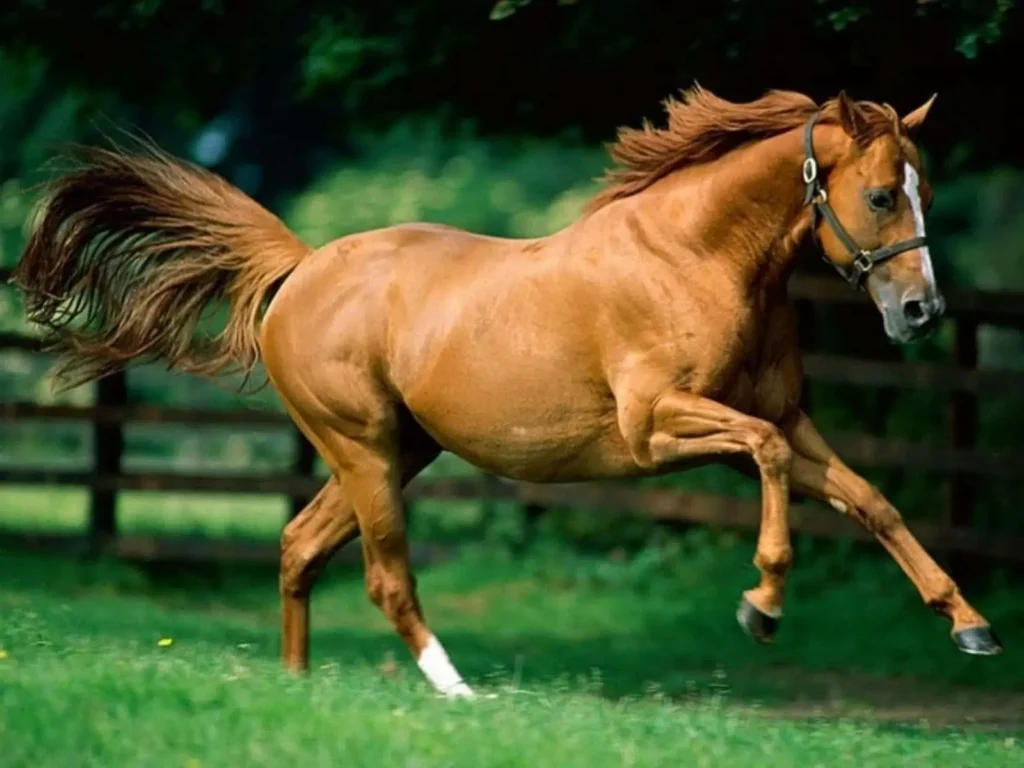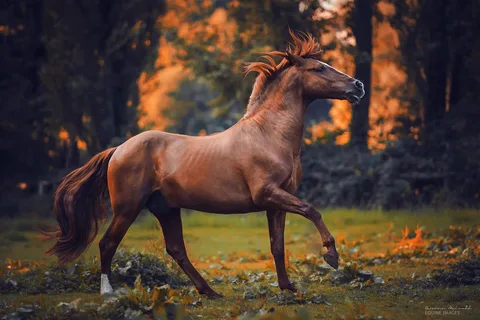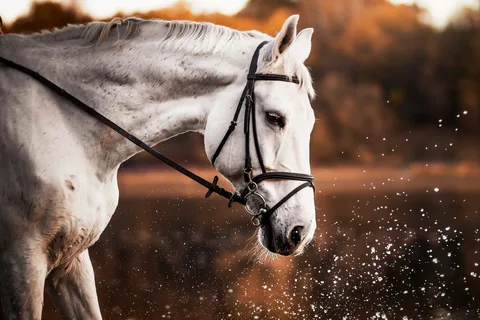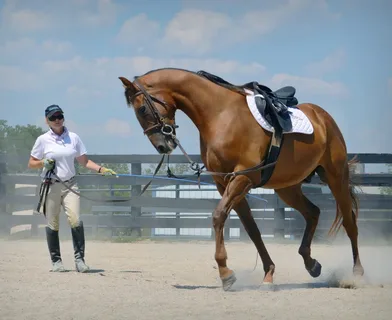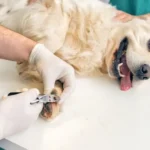Owning a horse is a lifelong commitment that requires substantial financial resources and dedication. While horses can bring immense joy, it’s important for potential horse owners to fully research and understand associated horse costs.
This comprehensive guide will outline typical expenses at each stage of horse ownership from purchase through long-term care. The intention is to offer a clear photo of what the actual horse cost entails so new proprietors can determine if they are prepared for the funding earlier than making any selections.
How Much Does it Cost to Buy a Horse?
One of the first considerations for new horse owners is budgeting for an initial horse purchase. Several key factors determine a horse’s price tag:
Breed – Horses of light horse breeds like Quarter Horses and Paints tend to cost less than horses of sport horse breeds developed for disciplines like dressage and evening. Knowing a horse’s breed can help when estimating the potential horse cost. Quarter Horses and Paints can often be found for $500-$5,000 while more specialized sport horses range from $2,000 up to $10,000 or more depending on training, bloodlines and success in competition. Miniature Horses bred as pets typically sell in the $500-$3,000 range. Breed directly impacts the starting price point owners should consider when budgeting for their horse cost.
Age Foals that have not yet been weaned from their mothers command top prices since buyers take on weaning, gentling and training from infancy. This greatly increases the overall horse cost. Weaned yearlings and two year old’s ready for breaking to saddle also represent a sizable investment as the initial training period requires experienced professionals. Young horses between ages 3-5 that have begun under saddle training tend to be the most expensive as they have begun the ride training process but still require considerable education. Financially, mature horses between 5-15 years old that are already established under riders provide more value as less training is needed and therefore a lower horse cost. Costs taper down again for aged horses 15 years and older, though vet care expenses do rise with advanced age.
Training level – Untrained horses that need gentling and basic riding lessons cost less than those with experience competing on local and regional circuits. Top level, nationally proven show horses command 5-figure price tags or higher.
Health and soundness – Buyers prefer horses with clean veterinary records and no current lameness issues. Known health conditions like previous injuries often reduce a horse’s market value.
Beyond the horse itself, additional up front purchase costs usually include licensing, registration with breed associations, required health documents, and transportation to a new home and facility. Plan to budget $500-1,000 on top of the purchase price to cover these associated fees.
Essential Tack and Equipment:
No horse is properly cared for without basic tack, equipment and supplies. A well equipped new owner should plan to budget at least $500-1,000 initially for safety gear. Key items include:
- Halter and lead rope ($25-50) Essential for catching, grooming and teeing the horse.
- Grooming kit ($50-100) Includes curry comb, brush, shed tool, hoof pick.
- English or Western saddle ($300-1,000+) Price depends on style, age, condition. Saddles are the horse’s biggest equipment investment.
- Bridle or headstall ($50-150) Adjustable nylon headgear for riding control.
- Boots/bandages ($50-100) Provides protection during work and exams feet.
- First aid kit ($30-50) Essential for minor injury treatment between vet visits.
With purchase costs for the horse itself starting around $500, practical first year budgeting should allocate $5,000-10,000 total including extra fees, supplies, licensing, and safe equipment. Proper budgeting prevents underestimating true responsibilities and ensures the horse’s welfare.
Monthly Expenses of Owning a Horse:
Ongoing costs for boarding, feed, veterinary care and farrier visits accumulate each month, making cost projections an important part of the ownership commitment.
Boarding Fees
boarding averages $300-450/month nationwide for pasture turnout with owner provided feed. This allows for grazing 24/7 on larger acreage facilities. Many horse owners instead choose full care boarding ranging $450-650 monthly with installed fencing, shelter and daily grain feedings by the facility. Full-care services remove workload from owners but carry higher fees.
For budget conscious owners, some facilities offer the option to assist with daily chores and stall cleaning in exchange for discounted rates around $300-400. Overall boarding costs represent the largest regular monthly expense besides feed.
Feed and Supplements
According to equine nutrition guidelines, the typical 1,000lb horse requires 10-12lbs of grain concentrate daily and 1-1.5 large square bales of hay or pasture grazing for a 3000 calorie diet. For a 16hh horse, monthly feed costs usually range:
- Hay (1 large bale daily) – $75-150
- Grain (10lbs daily) – $20-30
- Salt lick and minerals – $5-10
- Joint and hoof supplements – $10-30
Feed totals approximately $150-250 on average including hay, grain, and essential supplements for basic health and soundness. Horses with dietary allergies may require pricier specialized feed.
Farrier and Veterinary Needs
Keeping hooves properly trimmed and shod every 6 weeks avoids overgrowth and discomfort. The farrier appointment including new shoes runs $50-75 each visit. Annual veterinary exams, dental floats, and preventative vaccines help safeguard health at $100-200 yearly budget minimum. Disease or injury can easily drive up these costs so owners should carry savings or insurance.
Lessons and Training (Optional)
Many horse enthusiasts choose to further their education with professional riding instruction. Hour long beginner group lessons typically cost $25-40 each. Semi private and private instruction climbs to $65-85 per session with the best trainers. Boarders pay $500-800 monthly for full training board with daily lessons, use of school horses, and boarding discounts during camp seasons.
Additional Yearly Expenses
While monthly costs add up, budgeting annual care helps cover equipment replacement, unexpected vet bills, and routine hoof/dental care.
Farrier and Veterinary Care
- Farrier appointments bi-monthly at $50-75 each equals $300-450 per year.
- Annual dental appointment including floats runs $150-300.
- Vaccinations against tetanus, flu/rhino cost $100-200 total.
- Random vet checks, prescribed medications variable.
Tack and Equipment Upkeep
High impact saddles, bridles and equipment need periodic replacement parts or full overhauls:
- Saddle pad 1-2 years at $30-50
- Halters, lead ropes every 1-3 years at $25-50 each
- Saddle replacement every 5-10 years from $300-1000+
A realistic annual budget ranges $1,500-3,000 for consistent quality care. This doesn’t include shows, lessons, clinics or unexpected conditions. With age horses also experience increased vet costs, making savings crucial long-term.
Minimizing Costs
While involved, horse ownership remains accessible with strategic planning:
- Share boarding through half or full leasing with other owners.
- Learn basic care skills from experienced mentors.
- Buy used saddles, bridles and supplies in excellent condition.
- Feed affordable grass hay and supplements versus costly grain.
- Negotiate boarding discounts by assisting at the barn.
- Build relationships for lower priced layups, shipments.
- Insure registered horses against costly illnesses/injuries.
With realism about the substantial lifetime commitment and proper preparation including savings accounts, most budgets can accommodate responsible horse care. Ensuring resources match expectations prevents owner burnout and protects horse health for many happy years together.
FAQs:
Q:How much does 1 horse cost?
A: $500 to $3,000,
Q:How much do horses cost in the UK?
A: between £3,000 and £4,000
Q:Why is horse so expensive?
A: rarity, demand, and breed specific traits.
Q:What is the cheapest horse?
A: American mustang
Q:Are horses a luxury?
A:In many societies around the world, horses are a marvelous luxury.
Conclusion About Horse Costs:
The typical cost to properly own and enjoy a horse ranges between $8,000-$12,000 or more in the first year including purchase and setup costs. Then budget yearly maintenance of $3,000-$5,000 ongoing. Expenses remain throughout a horse’s lifespan averaging 25+ years.
Responsible research into true long term costs helps prospective horse owners determine readiness to provide for all their equine companions’ needs.
I hope this comprehensive guide has provided a realistic overview of financial considerations involved with horse ownership. Please let me know if any aspect needs further expansion or clarification. My goal is to fully inform readers regarding “how much does a horse cost.”

Hello! I am Methew Hills and I am from USA. I am a professional SEO content writer since 2018 and i am also a Teacher.

